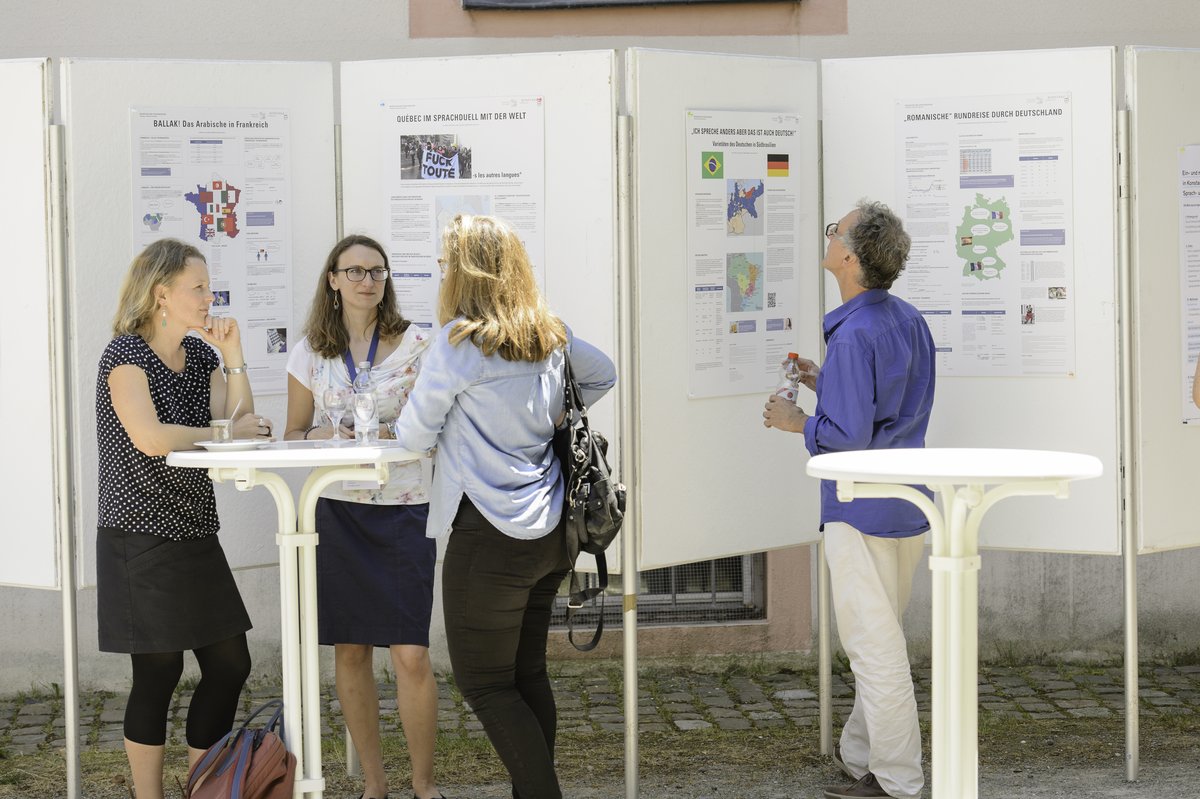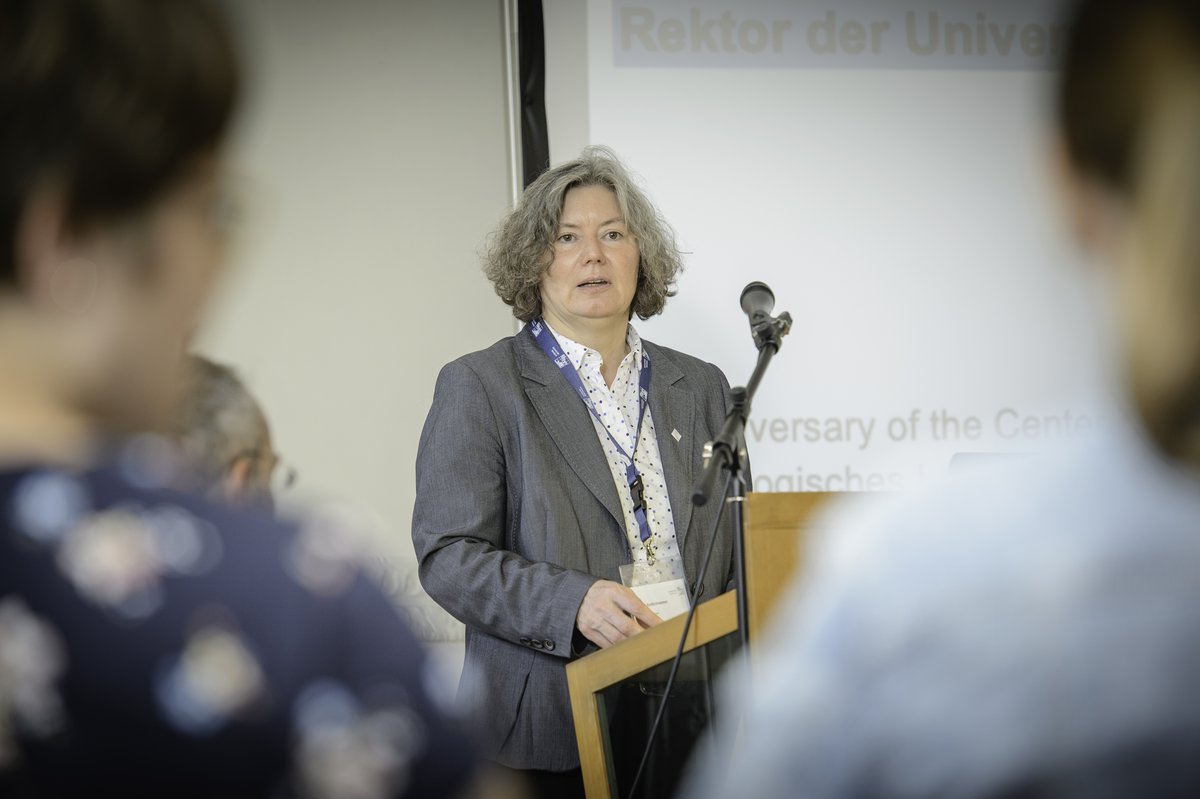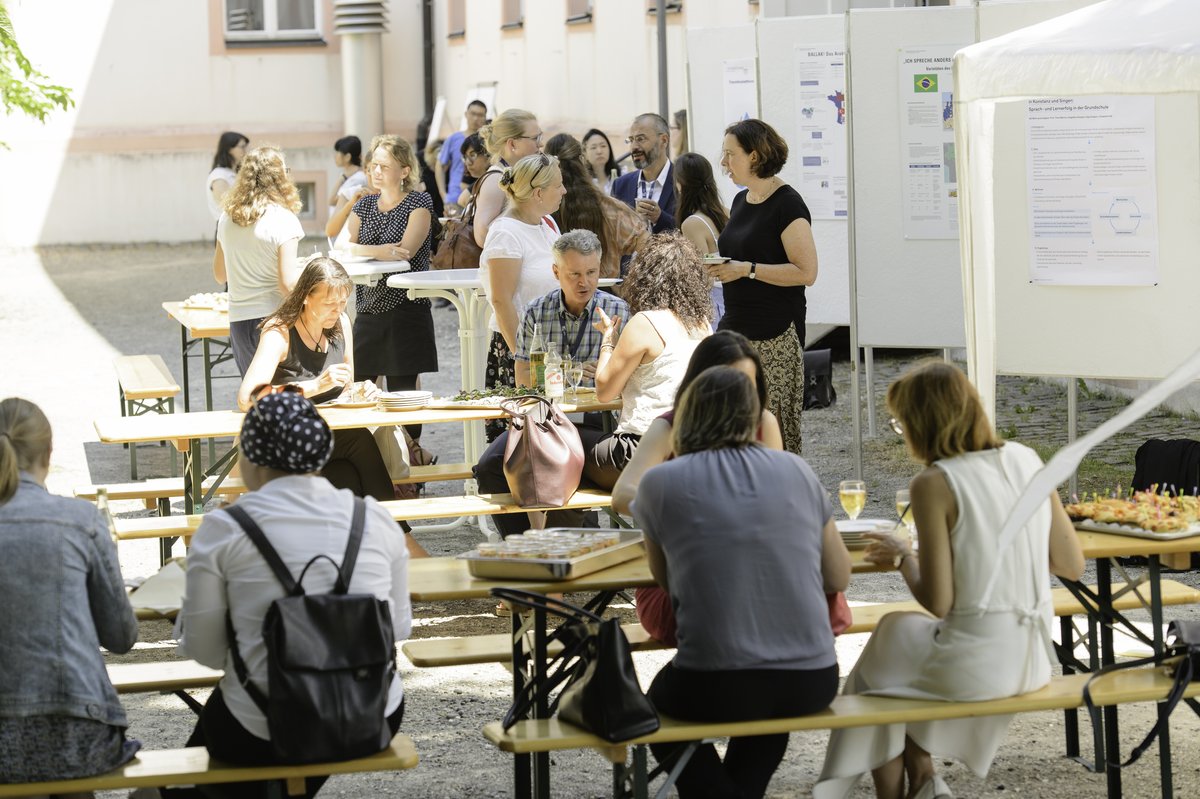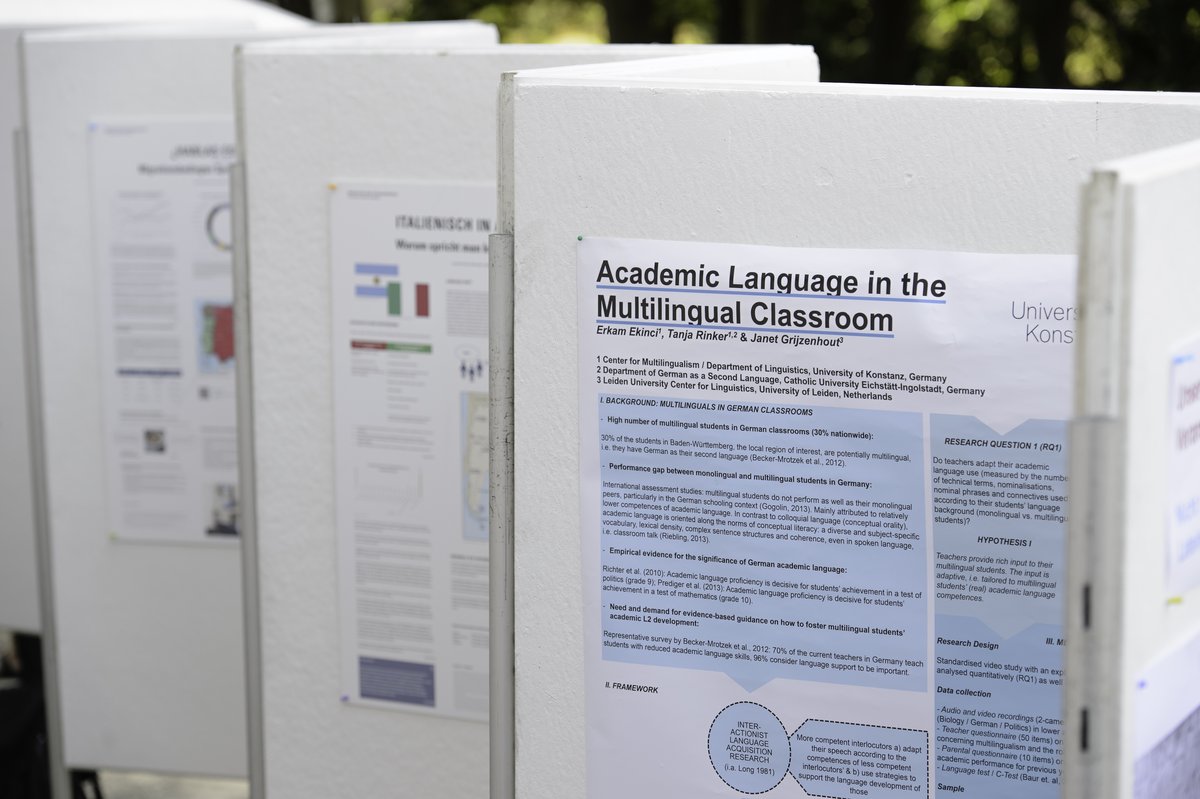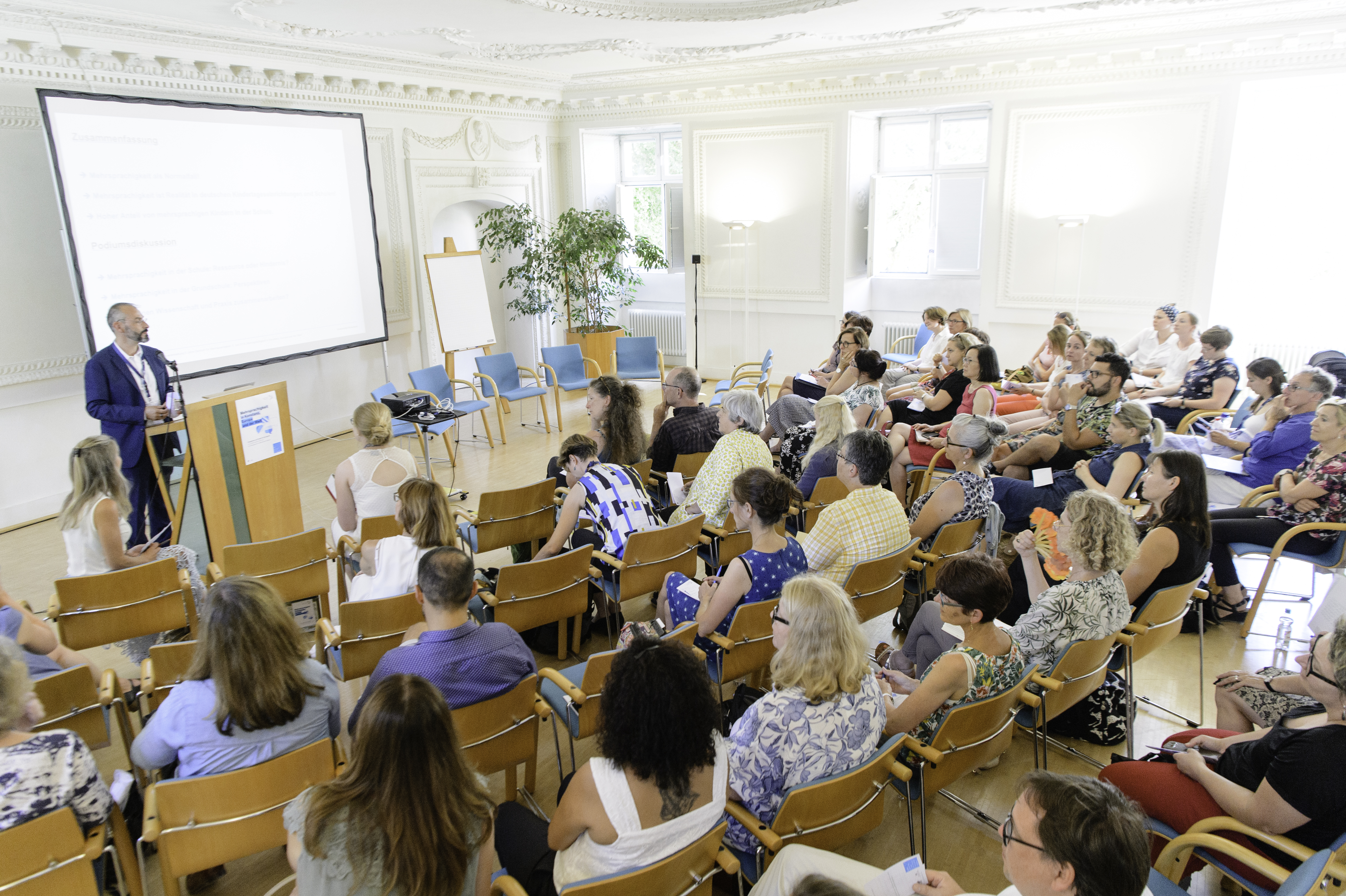
Multilingualism in Konstanz, Europe and the World
Fifth anniversary of the Centre of Multilingualism
A short recap
The Centre for Multilingualism organised a public engagement event to celebrate their 5th anniversary and to communicate research on multilingualism to a range of stakeholders. The event took place at the Archaeological State Museum in Konstanz, Germany on the 5th July 2019. The one-day event attracted an audience of approximately 100 people and included an academic and non-academic audience. The event was divided into two parts: the morning was dedicated to disseminating research findings while the afternoon was reserved for communicating research on multilingualism to the general public.
In the morning researchers from the field of linguistic (Erkam Ekinci, Prof. Dr. Janet Grijzenhout, Tanja Kupisch, Monika Lindauer, Prof. Dr. Theo Marinis, and Prof. Dr. Tanja Rinker) presented different aspects of multilingualism. Topics covered in the talks were: heritage language acquisition, language and reading abilities of multilingual children, monolingual mindsets in multilingual classrooms and myths and facts about bilingualism.
During the afternoon part, the participants heard an overview of results from past and current research projects as well as future plans on multilingualism research of the Centre as well as a presentation on “Successful education in elementary school with several languages?!”. This was followed by a panel discussion. The panel consisted of Prof Dr Theo Marinis, an academic expert on multilingualism, Prof Dr Axinja Hachfeld, an expert on Education, Elke Cybulla, the Integration Commissioner of the City of Konstanz, and Johanna Vogt, the Chair of the Parents’ Council in Konstanz. The panel discussion focused around multilingualism in education, challenges and opportunities for school and multilingual children. Prof Dr Marinis and Prof Dr Hachfeld communicated research findings on multilingualism to the general public and answered questions from the audience, for example, about how multilingual children develop their languages and what strategies to use to support multilingual families and to raise multilingual children. Mrs Cybulla addressed issues related to the integration of multilingual children in schools and Mrs Vogt brought the voice of the parents in the discussion. The audience included apart from academics, teachers, school administrators, school directors, officials from the City of Konstanz, families, and other residents from the City of Konstanz. The event concluded with three parallel workshops, a workshop for teachers on pedagogical approaches for multilingual classrooms, a workshop on multilingual urban gardening, and a workshop on the Arabic script.
The coffee breaks gave the opportunity for the diverse audience to mix and exchange ideas in an informal way as well as to discuss ideas about future projects and how to promote multilingualism in schools and in the society in general. A poster exhibition Languages in dialogue on the evolution of romance languages due to migration provided further information about multilingualism and another opportunity for discussion.

